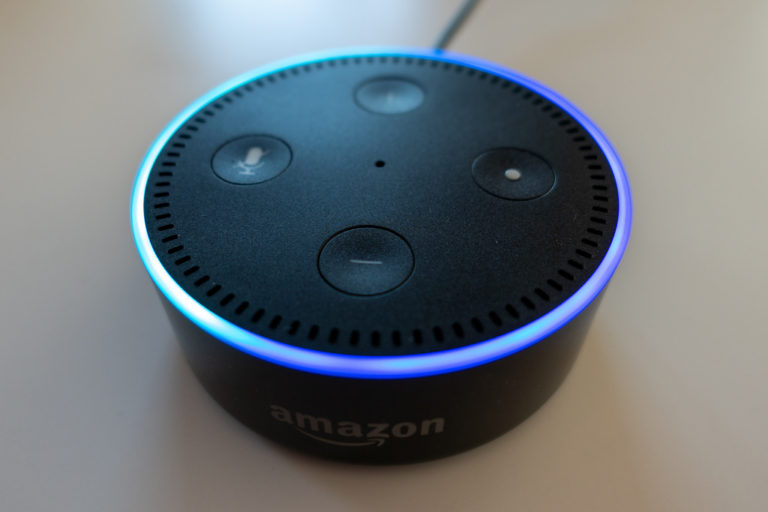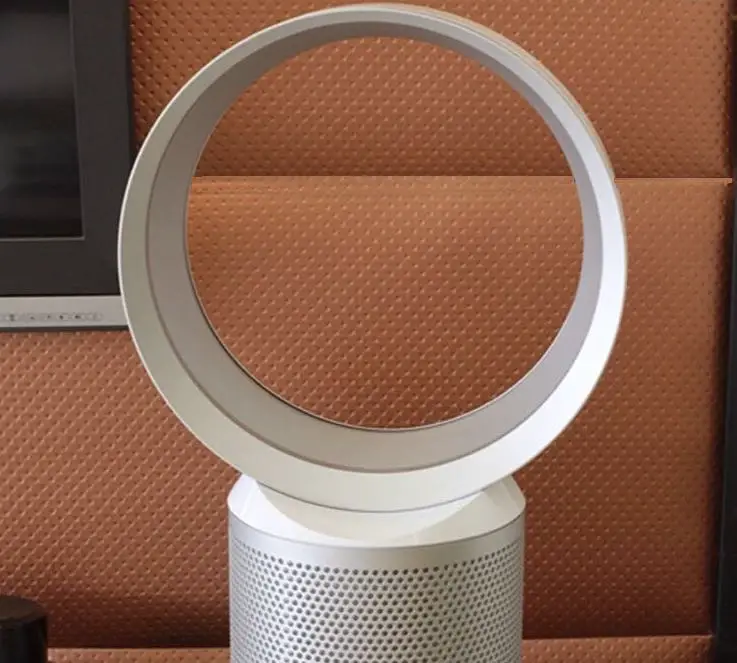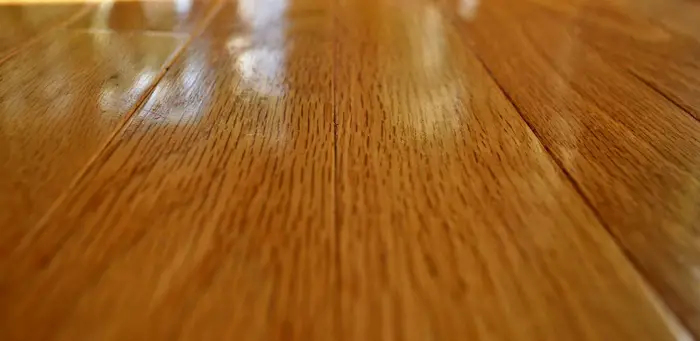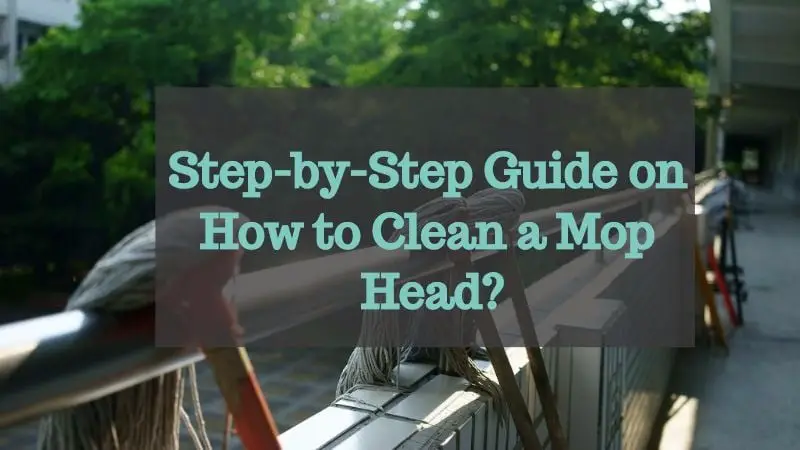Can I Use Air Purifier and Diffuser at the Same Time?
Having a purified air with a relaxing fragrance is a vital element to enjoying your space. That is from home to office and even in your vehicle. As such, to attain this ideal atmosphere, you will have to be in possession of both an air purifier and a diffuser. Well owning them is not the problem the big agenda is if you can use an air purifier and a diffuser at the same time. If you have faced this challenge before or you own the two devices, this article is for you.
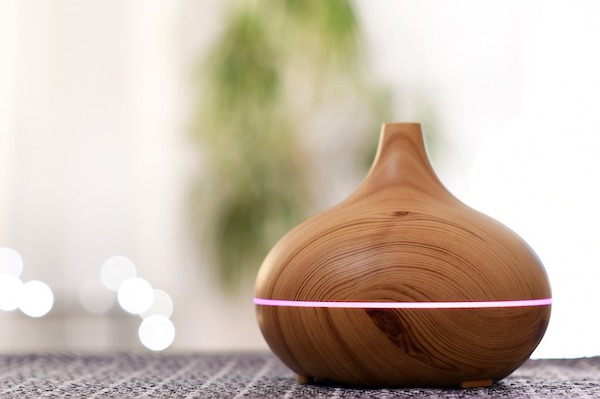
Is it possible to use an air purifier and a diffuser concurrently? Well, on the surface the answer is yes, however, there is more to it. Using an air purifier and a diffuser concurrently does not necessarily have any dire consequences. Nevertheless, this does not rule out, the fact that, the efficiency of these two tools is compromised when they are used at the same time.
To start, an air purifier when used at the same time in the same space compromises the efficiency of a diffuser. That it is, an air purifier will reduce the strength of the fragrance emitted by the diffuser when they are both running at the same time. This is just one of the effects of using these two devices together. As such, the best way to maximize the devices is using them at different intervals
If you have been wondering how to use an air purifier and a diffuse within your space, keep reading to learn why you should not use air purifier and diffuser concurrently. This article will also highlight how each of them works and some misconceptions associated with using an air purifier and diffuser.
So What Does An Air Purifier Do?
An air purifier also known as an air cleaner can be termed as an air helper. It gets rid of dust, chemicals, odors, mold and mites among other contaminants found in the air. Other than that, purifiers can sometimes get rid of some toxins and airborne contaminants.
There are different types of air purifiers depending on their intended use. They are
- HEPA Air Purifiers
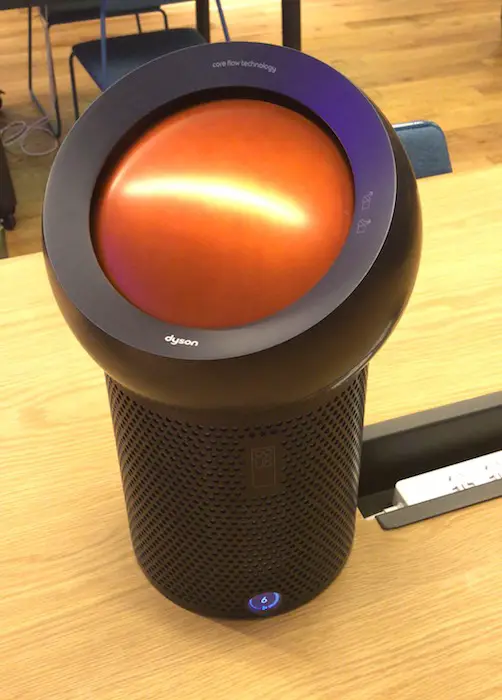
This is the most efficient type of air purifier. It has an advanced technology that ensures the trapped airborne bacteria and viruses do not multiply. A True HEPA Air Purifier like this gets rid of 99.97% of airborne particles am 0.3 microns. Many companies falsely brand HEPA Air Purifiers as ‘True’ HEPA Air Purifier. As such, be cautious to avoid being scammers. A True HEPA Air Purifier is tested and the test results are printed on the filter. This type of purifier also traps pollen grains, dust, and dander.
- Activated Carbon Purifier.
This purifier is effective in trapping odors, chemicals, VOCs and off-gassing.
- Ozone Generators
These purifiers are used in hotels to trap smoke in smoke allowing rooms. Ozone generators like this emit a high level of ozone gas as they purify the smoke. As such, after use, the room is not safe to enter until the ozone gas fades away.
- Ultra Violet Light Air Purifiers
An Ultra Violet Light air purifier uses ultraviolet light to alter the DNA of bacteria and viruses that pass through the purifier. As such, the trapped bacteria and virus cannot multiply. With this, your air remains free of contaminants.
- Electrostatic Precipitators
This type of precipitator charges the air with negative chargers. Therefore, the incoming negatively charged particles collect on electrostatic plates and they are trapped. This air purifier also has negative effects as it emits large amounts of ozone. Other than that, it can be quite expensive to maintain it.
What about a Diffuser?
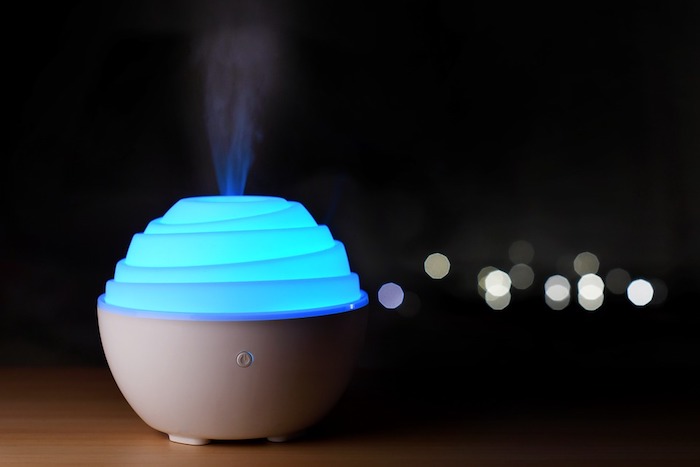
Diffusers are also known as essential oil diffusers. They work by dispensing essential oil and in turn, the oil emits a pleasant scent into the air. A diffuser is useful for aromatherapy. The different types of diffusers are
- Nebulizer Essential Oil Diffusers
It is popular for releasing the purest form of essential oils. This is due to its nature of breaking down oils into atoms and releasing them like perfume from a bottle. A nebulizer requires no heat or eater to function. It is the best form of aromatherapy you can consider in your space. You can have a look at it here
- Heat Essential Oil Diffuser
A heat diffuser heats the essential oil until it evaporates in the air. Every heat diffuser has a tray to place the essential oil and allow heating and evaporation. It is most effective for thick oils like Sandalwood. The source of heat ranges from electricity, candle and even a lamp.
Although a heat essential oil diffuser emits the essential oil, heating the oil sometimes removes the health benefits of the oil. As such, the purpose of having an essential oil diffuser in the first place is defeated.
- Ultrasonic Essential Oil Diffuser
An ultrasonic diffuser like this breaks essential oil into micro-particles and dispenses it to the air as a fine mix of mist. The process of dispensing the essential oils is silent, making ideal for working, sleeping or relaxing. This dispenser does not use heat to break down the essential oils. As such, the healthy qualities of the oil remain intact.
- Evaporative Essential Oil Diffuser
An adsorbent material found in the diffuser holds the essential oil in an evaporative diffuser. The diffuser then uses a fan to generate wind, which allows the essential oils to diffuse in the air.
So Can an Air Purifier Work With Diffuser Simultaneously?
Using an air purifier and a diffuser at the same time is possible but not necessary. This is because the two perform different functions and in some cases, the air purifier may disrupt the effectiveness of the diffuser. Other air purifiers but the HEPA Air Purifier cannot be used with a diffuser since they are sensitive to odor. As such, the scent from essential oils is trapped as part of the air contaminants decreasing its effectiveness in aromatherapy.
How Does an Air Purifier Counteract the Effectiveness of a Diffuser?
As stated above, if your purifier is not a HEPA Air Purifier, then it is possible that it is affecting the aromatherapy of your diffuser. Why do I say so? Well, take an example of having an Activated Carbon Purifier, this purifier is specifically designed to trap odor chemicals among other contaminants. As such, the purifier does not have enough integrity to differentiate between fresh odor and the odor that contaminates your air. Therefore, the diffuser will dispense essential oils, which will emit the fresh odor you desire in your home. However, if your air purifier is working at the same time as the diffuser, it will filter the fresh odor with the rest of the air contaminants. The results are reduced fresh odour in your space. This means zero work done by the diffuser which lenders it not resourceful.
So what is the Solution?
If you have to use both an air purifier and a diffuser, which I highly recommend, then do not use them concurrently. You can first use the air purifier to get rid of the unwanted air particles and contaminates. When you are satisfied your air is pure, then you can go ahead and enjoy the fresh fragrance from your essential oil diffuser.
What About Using a HEPA Air Purifier and a Diffuser
Well, there has been a heated debate about, does a HEPA Air Purifier counteracts the function of an essential oil diffuser. Well here is the good news. No, this air purifier does not affect the diffuser in any way.
To start, the essential oil dispensed are not part of the allergens that the HEPA Air Purifier seeks to remove. As such, the diffuser is not counteracted by any chance.
However, the concern is about the activated charcoal portion fitted in the HEPA Air Purifier, which gets rid of large odor particles. So why does it not get rid of the odor from essential oils?
This is the reason, essential oil dispensed are naturally made of very fine particles of mist. On the other hand, the charcoal filter only traps large particles. Therefore, the essential oil particles easily pass through the charcoal filter.
Nevertheless, some part of the scent may be trapped. So does it mean the HEPA Air Purifier counteracts the diffuser? No, it does not, here is why.
An experiment has revealed that the few essential oil particles that are trapped by the HEPA Air Purifier remain in the purifier’s exhaust. This is evident by the smell of exhaust, which resembles that of the essential oil.
Therefore, when you continue to run the air purifier, the essential oils eventually dissipate and diffuse in the air. As such, you can confidently agree that the HEPA Air Purifier does not have any effect on the working of a diffuser.
Misconceptions about an Air Purifier and a Diffuser
- The essential oil from a diffuser affects an air purifier. This is false. Keep in mind that the air purifier is a state of art technology that can handle the toughest allergens. Therefore, odor particles no matter how strong cannot stop an air purifier form working
- It is a misconception that an air purifier can replace a vacuum cleaner. A purifier can control the spread and concentration of dust particles and other contaminants but remove the dust from surfaces.
- It is a misconception that essential oils are toxic. This has continued to be a debate with people arguing that most oils cause a skin rash. The appearance of skin rash does not necessarily mean the oil is toxic. In fact, in some cases, the toxins in your body cause the skin rash as they try to escape due to the reaction between them and the essential oils. Therefore, essential oils are not toxic; if anything, they contain some very healthy elements.
Do Air Purifiers and Diffusers Have Any Health Benefits?
Yes, both of these devices have health benefits.
First, apart from trapping dust, pollen grains and smoke to mention but a few, an air purifier is very useful for people who suffer from respiratory diseases. It gets rid of allergens that trigger asthma attacks, bronchitis among others. The trick is in choosing the best air purifier depending on your health needs.
Second, as mentioned above, the diffuser dispenses essential oils that have natural health benefits. The oils are ideal for a relaxing mood that can help you unwind from stress and depression. Other than that, diffusers that use water, humidify you’re dried out airways allowing you to breathe with ease.
